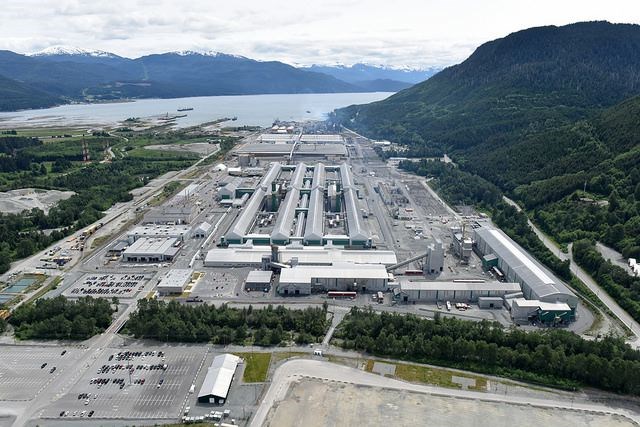A B.C. Supreme Court Justice has waived a $125,000 fine a lower-court judge levied against Rio Tinto Alcan for unlawfully lowering the Kemano River and destroying salmon in the process.
In a decision issued last week, Justice Kenneth Affleck found the judge failed to "weigh the factors relevant to that payment," beyond the notion that Rio Tinto was prosperous enough to pay the amount - a factor that should not have been considered.
The fine was to go towards fisheries conservation efforts and was in addition to $75,000 worth of penalties after Rio Tinto was found guilty of two counts under the Fisheries Act. The company also appealed the convictions but unsuccessfully.
The penalties stem a series of events in March and April 2011 that began when a BC Hydro employee became aware of a hotspot in a connector to the power lines from Rio Tinto's power generating station near Kitimat.
Surplus electricity not needed for Rio Tinto's smelter is sold to Hydro. It's generated by running water from the Nechako Reservoir through a 16-kilometre tunnel to a power station near Kitimat.
The water then flows into the Kemano River, which is home to eulachon, designated an endangered species, and salmon.
By the next day, Hydro told Rio Tinto the connector had to be replaced as soon as possible and proposed to do so by April 12. Rio Tinto was reluctant to agree because the water flow would have to be reduced at a time when there were eulachon eggs were in the river.
In response, Hydro said it was an emergency situation and if the connector failed, the generators would automatically shut down and the water supply to them would need to be reduced. On April 13, the connector was replaced over a three-hour period.
During the trial, an expert testified that while eulachon eggs would fare best if the water was decreased rapidly and at high tide to minimize their exposure to air, salmon eggs would do better in a slow ramp down because they're mobile and can swim to deeper water.
Doing the work at night would also be better for the salmon because they're photosensitive and more likely to remain in the gravel during the daytime. And on previous ramp downs, people were made available to rescue stranded salmon fry, a step that took weeks if not months to arrange.
The judge found the proper efforts were made to protect the eulachon but not for the salmon
In the days leading up to the work, Rio Tinto had also consulted with a Department of Fisheries and Oceans official about the risk of mortality for the eulachon. The company claimed it had the official's permission, but beyond a casual comment over the phone that Rio Tinto would "have to do what you have to do," the judge also found no ministerial authority was given.
Consequently, Rio Tinto was guilty of the two offences and in a decision issued this week, Superme Court Justice Kenneth Affleck upheld to convictions.
But in regard to the $125,000, Affleck found the damage to the fish was slight - noting the evidence amounted to anecdotal observations from a fishing guide - and the culpability was low enough to set aside that fine.

.png;w=120;h=80;mode=crop)

